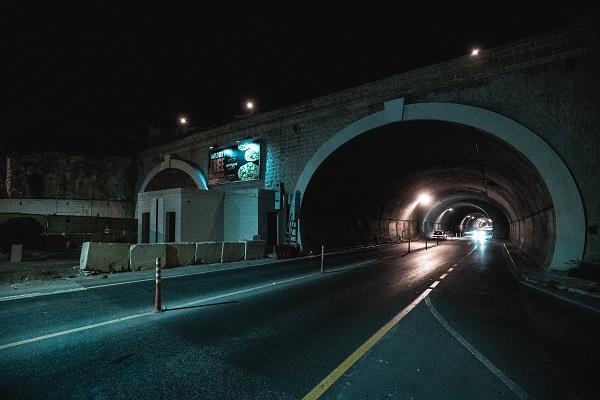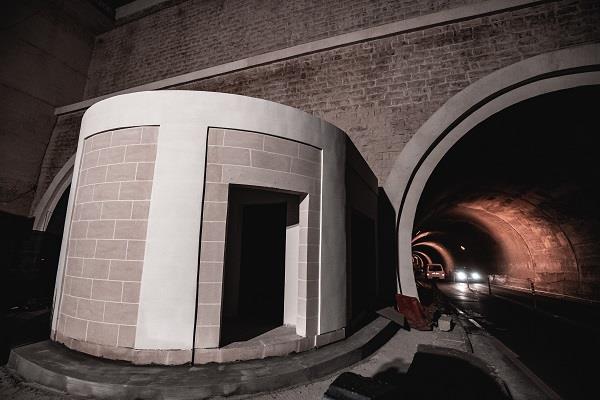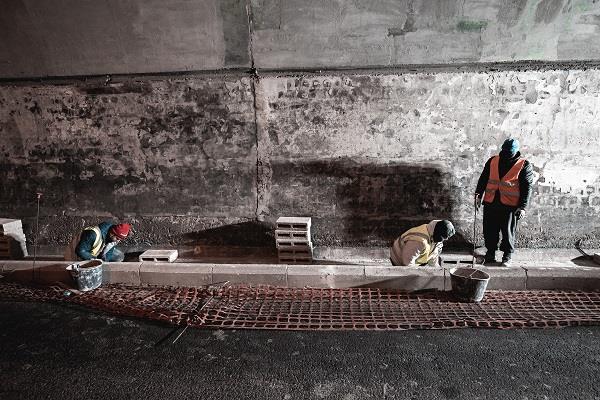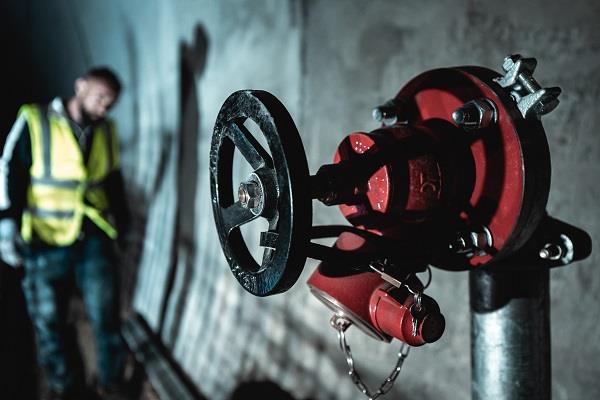The €10 million Infrastructure Malta project to rehabilitate the four main tunnels of the Maltese road network is advancing rapidly and all works are expected to be completed in June, Infrastructure Malta said.
In replies to The Malta Independent, the agency said that most of the work is being carried out during the night to cause as little inconvenience as possible to drivers. This has inevitably slowed down the process.
The agency said it started works to upgrade the Kirkop Tunnels, the Santa Venera Tunnels, the Tal-Qroqq Tunnels and the Ta’ Giorni Tunnels in August 2020. Each structure includes two unidirectional two-lane tunnels, in opposite directions, accommodating over 4.8 kilometres of lanes of the Maltese arterial road network. The oldest of the four tunnels is the Ta’ Giorni Tunnel, dating back to 1967. The most recent one, the Tal-Qroqq Tunnel, was constructed in 1996.
During the initial phases of the project, Infrastructure Malta said it cleaned the tunnel walls to remove decades of soot, before starting maintenance of the structure and its portals. Some sections of the tunnel portals had extensive damages and required major masonry works.

Photos: Marin Babanov, MCAST Institute for the Creative Arts
A ground-penetrating radar study of the two rock-cut tunnels at Ta’ Giorni and Santa Venera was also carried out to identify subsurface cavities or fissures that necessitate additional structural interventions. Some of these reinforcement works have already been carried out, while others are in progress.
Works continued with the construction of a control room outside each of these tunnels. Infrastructure Malta will be using these small structures for the control systems of the new mechanical and electrical systems that will be installed in the tunnel in the coming months. The contractors will now gradually dismantle all the existing electricity and lighting installations to make way for several new systems including appropriate LED light fixtures, CCTV cameras, fire alarms and air quality sensors.
The emergency escapes in each tunnel will be upgraded and equipped with fire doors, emergency call stations, emergency exit signage and evacuation marker lights, IM said.

In case of an emergency, the tunnels’ systems can be monitored and operated from the new control rooms. The CCTV cameras and sensors will also be linked to the national Traffic Control Centre, for constant monitoring. They will also be connected to an incident detection system that can automatically alert the authorities of any difficulties, such as fires or stopped vehicles.
Last month, the project contractors also started installing new fire fighting systems, including underground water pipes and fire hydrants. Following consultations with the Civil Protection Department and the Water Services Corporation, Infrastructure Malta also built underground reservoirs outside two of these tunnels, where no alternative water supply was readily available, to harvest water for the new firefighting systems.

This project also includes the application of specialised coatings to parts of the vertical walls of the structures, to improve visibility and facilitate routine cleaning and maintenance. Finally, Infrastructure Malta will complete the project with the reinstatement of the emergency footpaths above the service culverts along the sides of the tunnels and the resurfacing of the tunnels’ asphalt surfaces.
Technical assessments of the tunnels’ condition commissioned in 2018 concluded that whilst they were structurally sound and did not have any critical damage, they needed substantial maintenance works and localised repairs. The tunnels’ electricity and lighting equipment needs to be replaced to meet international standards. A major upgrade of the tunnels’ fire safety, security and emergency systems was also required, the analysis confirmed.

Infrastructure Malta said is carrying out most works of this project at night and at weekends, to reduce difficulties to the thousands of road users who use these tunnels every day. Most works cannot be carried out without closing vehicular access to the tunnels, to ensure workers’ and road users’ safety.
